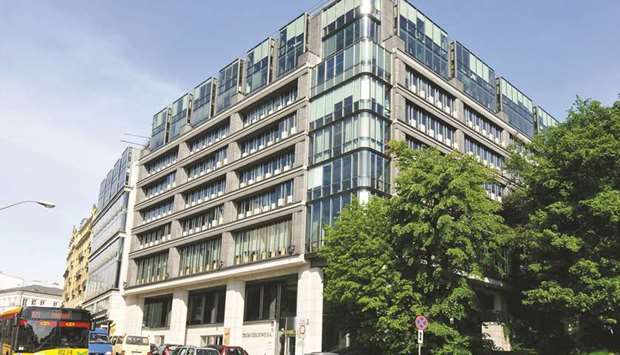Poland’s stocks graduated from emerging to developed-market status at index compiler FTSE Russell. It’s a prize that holds mixed blessings.
The reclassification, announced on Friday, means the Warsaw Stock Exchange has fulfilled the criteria for mature markets at a time Poland’s government is rebelling against the western democratic values it adopted after communism collapsed almost three decades ago.
While the European Union threatens to sanction Poland for eroding of the rule of law and the US government this week called on Polish authorities to respect judicial independence, equity investors remain on the offensive. Warsaw’s broad WIG index gained 24% in zloty and 42% in dollar terms this year amid vibrant economic growth and rising trading volumes.
That compares with a 25% dollar-term advance by the MSCI Emerging Markets index, which includes Polish stocks.
“The decision may have slightly positive marketing undertones,” Michal Sopiel, an analyst at the brokerage arm of Bank Zachodni WBK SA, said of the FTSE Russell action.
The real impact is uncertain and will take longer to manifest as the market opens to new types of funds, Sopiel said. One negative effect may come from developing-market funds being forced to sell more than 1bn zloty ($275mn) of Warsaw stocks, he said.
Poland, the first eastern European nation to win such an upgrade, met all 23 benchmarks for promotion by London Stock Exchange Group Plc-owned FTSE Russell after the introduction of omnibus accounts that cut red tape and costs for foreign investors.
The promotion is effective in September 2018, the Warsaw Stock Exchange said in a statement.
The allure of investing in some of eastern Europe’s most attractive equities is likely to prove decisive, said Paul P Psaila, managing director at Morgan Stanley Investment Management.
“Polish political risk is a more important topic for foreign direct investment types than it is for equity funds right now,” New York-based Psaila said in an interview before FTSE Russell announced the upgrade.
“Robust growth and the availability of companies that are becoming leaders for the whole region are things that investors cannot reject, especially as politics is a problem in many other emerging countries, not to mention developed ones.”
Poland’s WIG20 stock index climbed 1.1% on Friday, the biggest daily gain in eastern Europe and the sharpest in Warsaw in nearly three weeks.
“The dynamic development of the Polish economy represents an opportunity for international investors,” Marek Dietl, chief executive officer of the Warsaw Stock Exchange, said in an emailed statement.
“Poland’s upgrade to developed market status is a challenge, which we are ready to face.”
It’s not clear if there will be enough developed-market funds to replace those tracking Warsaw-listed stocks as an emerging-market asset, with local brokerages expected to seek business with a new group of clients.
Israel’s promotion by MSCI Inc to developed status in 2010 resulted in large outflows from the Tel Aviv exchange, as local technology companies showed more interest in Nasdaq listings.
“After the move, Poland’s representation in indexes would be trimmed to about a ninth of what it is now under emerging status,” Maciej Marcinowski, an analyst at Trigon Dom Maklerski brokerage in Warsaw, said by email before the decision.
“Of course, the developed category offers access to a much bigger pool of investors, but the question is: will smaller companies be able to join the new benchmarks?” Reclassification could help Polish companies already expanding in Western markets, such as clothing retailer LPP SA, shoemaker CCC SA and restaurant operator AmRest Holdings SA.
Developed-market status may allow them to gain recognition among a new group of investors and help them fund growth.
Other companies may be in for a nasty surprise.
“Some companies may be shocked that they are too small to attract the interest of funds focusing on developed nations,” Morgan Stanley’s Psaila said.

The Warsaw Stock Exchange in Poland. Poland’s stocks graduated from emerging to developed-market status at index compiler FTSE Russell. It’s a prize that holds mixed blessings.
